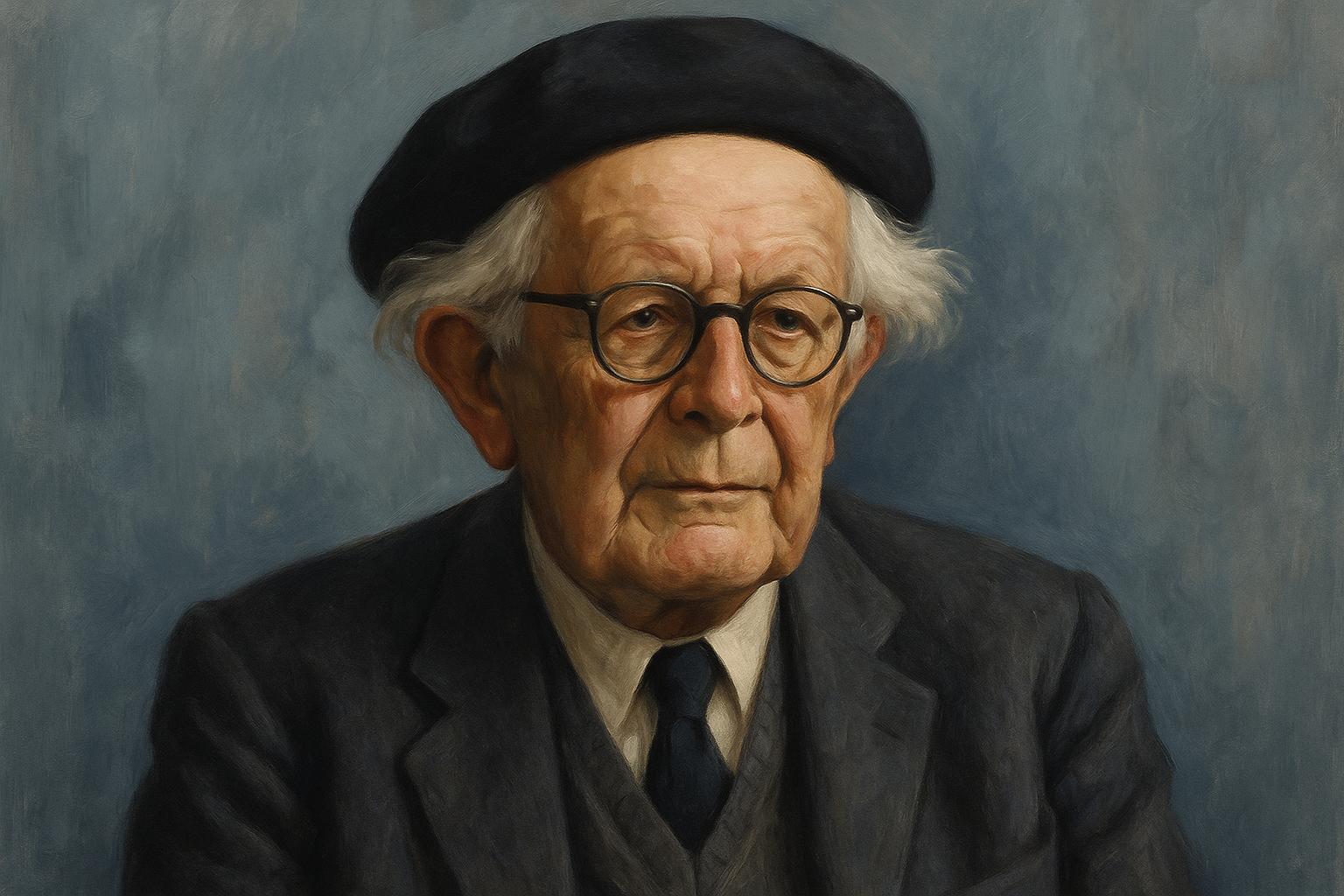Jean Piaget: Life, Work, and the Theory of Cognitive Development

Quick Summary
Jean Piaget was a Swiss psychologist best known for his theory of cognitive development, which explains how children actively construct knowledge through stages. His work transformed developmental psychology by showing that children’s thinking is not just a simpler version of adult reasoning but follows a unique logic that changes over time. Piaget’s stages include sensorimotor, preoperational, concrete operational, and formal operational, which remain central to how we understand childhood learning and education. His insights continue to influence psychology, education, and research on cognitive growth.
Who is Jean Piaget
Jean Piaget (1896–1980) was one of the most influential figures in developmental psychology. He introduced a groundbreaking theory of how children’s thinking evolves in distinct stages. Piaget argued that children are not passive recipients of knowledge but active learners who build understanding through interaction with the world.[1]
Piaget’s Background and Career
Jean Piaget was born in 1896 in Neuchâtel, Switzerland. He developed an early interest in science and published his first paper at age 11. After earning a doctorate in zoology, he shifted to psychology while working at Alfred Binet’s lab in Paris. There, he noticed that children’s wrong answers on intelligence tests revealed distinct patterns of thinking, sparking his interest in how reasoning develops with age.[2][3]
Piaget continued his work at the Jean-Jacques Rousseau Institute in Geneva and later held academic posts across Europe. In 1955, he founded the Centre International d’Épistémologie Génétique to explore how knowledge forms. He published over 60 books and remained active in research until his death in 1980.[2][4]
The Theory of Cognitive Development
Piaget’s main contribution to psychology is his theory of cognitive development, which outlines how children’s thinking evolves as they grow. He believed that development occurs in stages, with each stage representing a new and qualitatively different way of understanding the world.[4]
Two key processes drive this development:
- Assimilation: Integrating new information into existing mental frameworks
- Accommodation: Modifying existing frameworks to incorporate new information
Together, these processes form equilibration, a self-regulating mechanism that allows children to maintain a stable and accurate understanding of the world.[5]
The Four Stages Explained
1. Sensorimotor Stage (Birth to 2 years)
In this stage, infants learn through physical interaction and sensory experiences. A key milestone is object permanence, the understanding that objects continue to exist even when they are not visible.[1]
2. Preoperational Stage (2 to 7 years)
Children start using language and symbols to represent objects. However, their thinking is still egocentric and lacks logical reasoning. They struggle with concepts like conservation, the idea that quantity remains the same despite changes in shape or appearance.[6]
3. Concrete Operational Stage (7 to 11 years)
Logical thinking emerges during this stage, but it is limited to concrete, observable events. Children can perform operations such as classification, seriation, and reversibility, and they gain a better understanding of conservation.[4].
4. Formal Operational Stage (12 years and up)
Abstract thinking becomes possible. Adolescents can use deductive reasoning, imagine hypothetical scenarios, and consider multiple perspectives. This stage marks the beginning of adult-style thought.[6]
Impact on Education and Psychology
Piaget’s work significantly influenced education by promoting active learning rather than passive memorization. His theory led to constructivist teaching methods, where students build understanding through exploration and experience. Educators using this approach focus on developmental readiness, hands-on activities, and peer collaboration.[7]
In psychology, Piaget’s framework helped researchers understand how reasoning changes with age. His work laid a foundation for developmental and cognitive psychology, as well as epistemology, the study of knowledge itself.[3]
Criticisms and Revisions
Despite its lasting influence, Piaget’s theory has been criticized. Some psychologists also highlighted methodological concerns and questioned whether cognitive development occurs in fixed, universal stages, noting that Piaget may have underestimated children’s abilities in certain contexts.[8] Some argue that development may be more gradual and continuous than his stage model suggests. Others believe he underestimated children’s abilities, especially when tasks are presented in familiar or supportive environments.[9]
Alternative theories, such as Lev Vygotsky’s sociocultural perspective, emphasize the role of language, culture, and interaction in shaping thought. Many modern approaches combine Piaget’s insights with newer findings to provide a more complete view of cognitive development.[10]
Lasting Legacy
Jean Piaget’s work continues to shape how we understand learning, thinking, and the development of knowledge. His theory remains foundational in developmental psychology, and his belief that children are active participants in their own learning has influenced education systems around the world. Even as psychology evolves, Piaget’s legacy endures in both research and practice.
References
- Piaget, J. (1952). The origins of intelligence in children (M. Cook, Trans.). W. W. Norton & Company. https://doi.org/10.1037/11494-000
- Britannica. (n.d.). Jean Piaget. Encyclopedia Britannica. https://www.britannica.com/biography/Jean-Piaget
- Smith, L. (1992). Jean Piaget: Critical assessments (Vol. 1). Routledge.
- Bringuier, J.-C. (1980). Conversations with Jean Piaget (B. M. Gulati, Trans.). University of Chicago Press.
- Piaget, J., & Inhelder, B. (1969). The psychology of the child (H. Weaver, Trans.). Basic Books.
- Inhelder, B., & Piaget, J. (1958). The growth of logical thinking: From childhood to adolescence (A. Parsons & S. Milgram, Trans.). Basic Books. https://doi.org/10.1037/10034-000
- Woolfolk, A. (2019). Educational psychology (14th ed.). Pearson Education.
- Flavell, J. H. (1963). The developmental psychology of Jean Piaget. Van Nostrand.
- Lourenço, O., & Machado, A. (1996). In defense of Piaget’s theory: A reply to 10 common criticisms. Psychological Review, 103(1), 143–164. https://doi.org/10.1037/0033-295X.103.1.143
- Vygotsky, L. S. (1978). Mind in society: The development of higher psychological processes. Harvard University Press. https://doi.org/10.2307/j.ctvjf9vz4



